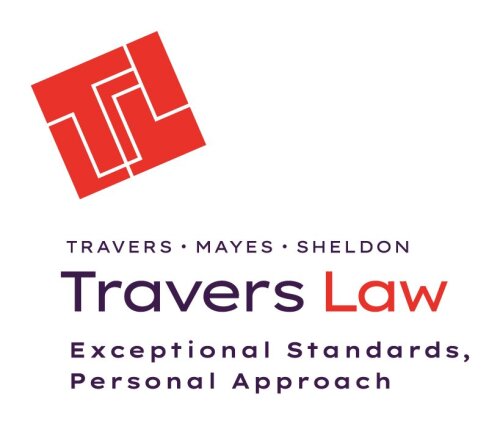Best Trusts Lawyers in Waterloo
Share your needs with us, get contacted by law firms.
Free. Takes 2 min.
List of the best lawyers in Waterloo, Canada
About Trusts Law in Waterloo, Canada
Trusts are legal arrangements allowing a person, known as the settlor, to transfer assets to another party, called the trustee, who then manages those assets for the benefit of one or more beneficiaries. In Waterloo, Ontario, and across Canada, trust law is primarily governed by both federal and provincial legislation, as well as common law principles developed in court decisions. Trusts are commonly used for estate planning, tax planning, protecting assets, charitable giving, and caring for vulnerable family members.
Why You May Need a Lawyer
Trusts can be complex legal structures, and there are various situations where seeking legal advice is crucial. Common reasons to consult a lawyer include:
- Setting up a family trust to manage inheritance and estate planning
- Establishing a trust for a beneficiary with disabilities (such as a Henson trust)
- Managing tax implications related to trusts
- Resolving disputes between trustees and beneficiaries
- Ensuring compliance with Ontario trusts and estates laws
- Transferring property into or out of a trust
- Advising on charitable trusts or donations
- Updating existing trusts in response to changing family situations or law reform
- Administering or winding up a trust after the settlor’s death
Local Laws Overview
In Waterloo, Ontario, trust law operates under a blend of statutes and judicial decisions. Key legislative frameworks include the Trustee Act (Ontario), the Succession Law Reform Act, the Income Tax Act (Canada), and aspects of the Rules of Civil Procedure for litigation matters. Some important local considerations are:
- Trustee obligations: Trustees must act in the best interests of beneficiaries, maintain accurate records, and follow the terms of the trust deed.
- Types of trusts: Common types include inter vivos (living) trusts, testamentary trusts (created by a will), and special-purpose trusts (such as Henson trusts for disabled beneficiaries).
- Taxation: Trusts are often treated as separate taxpayers and must file annual tax returns. Proper legal structure is vital to avoid unintended tax consequences.
- Disclosure and reporting: Trustees have a duty to provide information and account to beneficiaries.
- Variation and termination: Changes to or winding up a trust typically require legal expertise, particularly if beneficiaries’ interests are affected.
Frequently Asked Questions
What is a trust?
A trust is a legal arrangement where one party (the trustee) holds and manages assets for the benefit of another party (the beneficiary), as directed by a trust document or will.
Do I need a lawyer to create a trust?
While it is legally possible to set up a trust without a lawyer, professional guidance is strongly recommended to ensure the trust is valid, effective, and achieves your objectives.
What types of trusts are commonly used in Waterloo?
Common trusts include family trusts, testamentary trusts (created by a will), Henson trusts for persons with disabilities, and charitable trusts.
How are trusts taxed in Canada?
Trusts are generally regarded as separate taxpayers and must file annual tax returns. Different types of trusts are subject to various tax rates and rules.
Can I make changes to an existing trust?
Changes to a trust depend on the terms set out in the trust deed and applicable law. Some trusts can be amended, while others, especially testamentary trusts, may require court approval.
What are the responsibilities of a trustee?
A trustee must manage trust assets prudently, follow the terms of the trust, act impartially among beneficiaries, avoid conflicts of interest, and keep accurate records.
What happens if a trustee fails in their duties?
Trustees who breach their duties can be removed by a court, may be required to compensate the trust or beneficiaries for losses, and could face legal action.
How do I choose a trustee?
Select someone trustworthy, financially responsible, and willing to take on the legal obligations. Professionals or trust companies may be appointed in complex situations.
Can beneficiaries dispute the actions of a trustee?
Yes, beneficiaries can challenge trustee decisions or seek court intervention if they believe a trustee is not fulfilling their duties or acting contrary to the trust’s terms.
How can I end a trust?
A trust may end according to its terms, by agreement among all beneficiaries (if legally permissible), or via court order, depending on circumstances and provincial laws.
Additional Resources
If you need further information or support, the following resources may be useful:
- Ontario Ministry of the Attorney General - Offers guidance on wills, estates, and trust matters.
- Law Society of Ontario - Provides lawyer referrals and guidance on finding suitable legal professionals.
- Canada Revenue Agency (CRA) - For tax issues related to trusts and estates.
- Waterloo Region Community Legal Services - May offer basic legal information or referral services.
- Local estate planning organizations and financial planning professionals.
Next Steps
If you believe a trust may be beneficial for your situation, or if you need advice regarding an existing trust, consider taking these steps:
- Consult with a knowledgeable trusts or estate planning lawyer in Waterloo who can assess your needs and explain your options.
- Gather relevant documents such as wills, existing trust deeds, and information on assets and intended beneficiaries.
- Prepare a list of questions or concerns to discuss with your lawyer during your consultation.
- If you are a trustee or beneficiary with concerns, document any issues and seek legal advice promptly to protect your interests.
- Stay informed about changes in laws or regulations affecting trusts by following trusted legal resources or professional associations.
Seeking professional legal advice is the best way to ensure your rights and interests are protected when dealing with trusts in Waterloo, Canada.
Lawzana helps you find the best lawyers and law firms in Waterloo through a curated and pre-screened list of qualified legal professionals. Our platform offers rankings and detailed profiles of attorneys and law firms, allowing you to compare based on practice areas, including Trusts, experience, and client feedback.
Each profile includes a description of the firm's areas of practice, client reviews, team members and partners, year of establishment, spoken languages, office locations, contact information, social media presence, and any published articles or resources. Most firms on our platform speak English and are experienced in both local and international legal matters.
Get a quote from top-rated law firms in Waterloo, Canada — quickly, securely, and without unnecessary hassle.
Disclaimer:
The information provided on this page is for general informational purposes only and does not constitute legal advice. While we strive to ensure the accuracy and relevance of the content, legal information may change over time, and interpretations of the law can vary. You should always consult with a qualified legal professional for advice specific to your situation.
We disclaim all liability for actions taken or not taken based on the content of this page. If you believe any information is incorrect or outdated, please contact us, and we will review and update it where appropriate.










